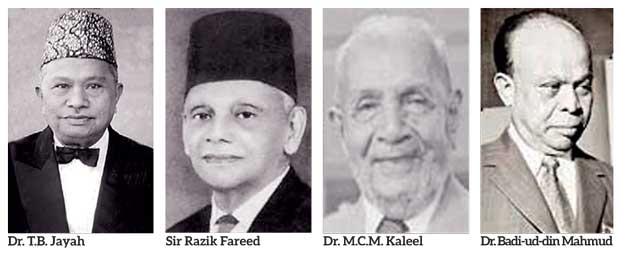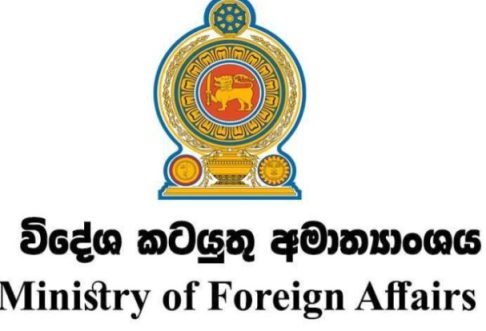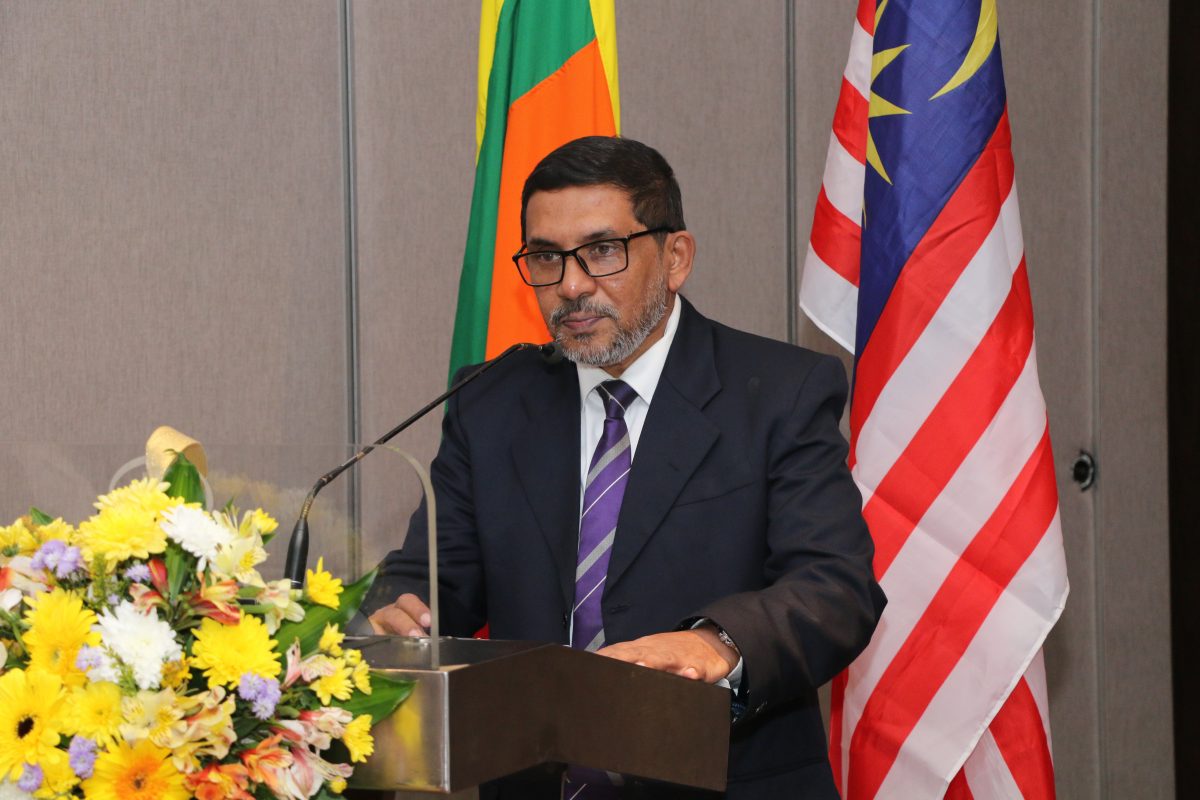This article is an extended version of a short address that I made at the recent launch of the Sailan Muslim website (www.sailanmuslim.com ), in which my focus was on the politics of identity. As this article has the same focus I will not be going into the rationale and objectives of the new Muslim website except to the extent that they have a relevance to the politics of identity.
When I and a group of my Muslim friends hit on the idea several months ago of starting a new Muslim website, we were troubled – I must say that we were deeply troubled – by the fact that in doing so we would be engaging in the politics of identity. By that is meant a politics intended to serve group interests. There is nothing inherently wrong about that in pluralist multicultural countries such as Sri Lanka . However, it has been found in practice that there is an almost irresistible drive in identity politics to make group interests predominate over every other interest, including the national interest, and that of course can be expected to lead to misunderstanding, tension, rivalry, and also conflict, as is attested by the tragic history of Sri Lanka in recent decades. I and my Muslim friends were acutely aware of those facts. But we continued also to be acutely aware of the major rationale for our wanting to establish a new Muslim website – namely, the continuing failure of the Muslim politicians to properly represent the Muslims. That may not have mattered at one time when all that was needed to satisfy the Muslims was to meet their religious needs and business interests. But with the spread of mass education, younger generations of Muslims are increasingly involved in the struggle for scarce resources. In this situation, a continuing failure to properly represent the Muslims will almost inevitably lead to a radicalization of Muslim politics, the incipient signs of which in the Eastern Province have troubled many of us for some years.
But there is also a broader reason for our engaging in identity politics by establishing this website. Our minorities do not unequivocally accept that our two major parties are authentic national parties, after the manner for instance of the Indian National Congress. They are seen, rightly or wrongly, as serving primarily the interests of the majority ethnic group – which is a reason why the Muslim members of those parties play a marginalized role in them and cannot adequately represent the Muslims. The Sri Lankan failure to come up with an authentic national party should really be seen in an international perspective, which suggests that identity politics are in the process of becoming predominant practically all over the world.
In the last century the great black American ideologue W.E.B Dubois wrote that the greatest problem of the twentieth century would be the color line. Most historians would probably disagree, but a plausible case can be made out for that notion if we recognize that Hitler waged the Second World War to establish a white Aryan domination over the globe, and thereafter the colored peoples of the world engaged in a successful struggle to assert their independence. Some months ago President Obama was reported to have said that the greatest problem of this century would be that of the Other, evidently having in mind ethnic problems that cut across the color line. Some time ago the Marxist economic historian Eric Hobsbawm wrote that the only kind of politics we are coming to have are identity politics in which group interests predominate over everything else. I cannot go into much detail in this article to substantiate that view. I will mention only that in Britain which seemed to be a solidly integrated society the drive for Scottish and Welsh autonomy has proved to be irresistible, and India where secularism in politics seemed so well entrenched has witnessed the Hindutva upsurge.
I cannot of course explore in this article the reasons why identity politics have come to acquire such salience in the contemporary world. The point I want to emphasize is that that salience makes it understandable that a group of SL Muslims decided to establish a Muslim website while at the same time being deeply troubled about its implications. In the course of our discussions we came to realize that the way to evade the possible negative consequences of identity politics is to recognize as the legitimate interests of the group, namely the Sri Lankan Muslim ethnic group, only those interests that are compatible with the interests of the Sri Lankan nation. This would mean, for instance, that the SL Muslims refrain from kicking up a row over the Kashmir problem because the interests of the Sri Lankan nation require that we maintain the friendliest possible relations with India .
The argument that I have been developing above implies certain facts about identity. People in the contemporary world tend to have multiple identities. Every SL Muslim, for instance, has at least two identities, as he is conscious of being a Muslim and at the same time of being a Sri Lankan. It is only on the basis of recognition of this dual identity that the legitimate interests of the SL Muslims can be secured and promoted, as obviously that will not be possible in opposition to the interests of the SL nation. We have accordingly called the new website “Sailan Muslim” – Sailan being the ancient Muslim name for Sri Lanka – to remind ourselves of our inescapable dual identity. Also we have adopted the motto “Diversity and Inclusiveness” to give value to the existence of diverse ethnic groups and at the same time to their reaching out to a sense of unity with other ethnic groups. A politics of identity developed on this basis can lead to a notable contribution to the nation-building process in Sri Lanka – a desperate necessity as shown by our ethnic civil war.
II
In the second part of this article I will try to provide an Islamic legitimation to the kind of identity politics that I have outlined above. This means that I will have to give a positive value in Islamic terms both to the group and to the unity that transcends groups, both – in the terms of our motto – to Diversity and Inclusiveness.
The most apposite statement in the Koran giving positive value to both those terms is the following: “Oh mankind! We have created you from a male, and a female, and made you into nations and tribes, that you may know one another.” (V49:13). When I made my address at the launch of the Sailan Muslim website I confessed that I did not quite understand, or understand fully, what that meant, except that a high value was being placed on belonging to groups (Diversity) and at the same time to reaching out to other groups in striving to achieve unity (Inclusiveness). Significantly this has become perhaps the best-known quotation from the Koran in recent decades. It seems to signify that people have been becoming acutely conscious of belonging to groups, of the need to belong to groups, and that that gives rise to a need to reach out to other groups in order to achieve some sort of unity.
As to what exactly that quotation means, it appears that contemporary anthropologists will find nothing perplexing about it. Some Muslims will hold that that quotation is a further example of the Koran anticipating the findings of the modern sciences. In a French book on anthropology Nicolas Journet writes that “culturalists” often use examples from the “more simple” civilizations to criticize the modern world, after which he proceeds, “It is a way of saying that transcending their cultures, men can learn from one another, and also a way of perpetuating the idea that ‘we’ form an entity different from ‘others’.” (from La Culture edited by N.Journet – 2002).
Many non-Muslims will find it difficult to associate the idea of Inclusiveness with Islam. That idea involves a reaching out to other groups instead of being confined to one’s own group, the forging of relations of amity and co-operation with other groups, in accordance with a recognition of the under-lying oneness of all humanity. But Islam tends to be associated nowadays with fundamentalism, fanaticism, extremism, intolerance, and violence, showing a distinct tendency towards the anathematization of non-Muslims. That may be true of some Muslims, but it is far from being an accurate characterization of the great majority of mainstream orthodox Muslims. However, it is true that Muslims show a tendency to withdraw into their own groups while avoiding interaction with others as far as might be possible. But this, in reality, is true of Muslims during the decadent phases of Islamic civilization, mainly after 1200AD, not of Muslims under the Umayyad and Abbasid civilizations, the latter of which showed a thoroughly ecumenical openness to the non-Muslim world.
It might be accurate to draw the fundamental contrast between the Jews and the Muslims in terms of the ghetto. For almost two millennia the Jews were forcibly confined to their ghettos, and produced no great internationally recognized figure except for Maimonides – the great Spinoza having been excommunicated from the Jewish community. They were freed from their ghettos in the nineteenth century, and straightaway showed very impressive achievement levels. The Muslims, on the other hand, tended after 1200AD to voluntarily confine themselves to their own ghettos. Their achievement levels – let us face it – have not been impressive. We SL Muslims should bear these facts in mind, and give due importance to the ideal of Inclusiveness.
In dealing with the problem of Muslim exclusiveness the point that requires emphasis is that it does not flow from anything that is inherent in Islam. It flows only from some interpretations of Islam, not from others. The truth is that there are several interpretations of Islam, none of which can command the unanimity of all Muslims all over the globe. The different varieties of fundamentalists are all mistaken in imagining that they alone have rediscovered authentic Islam in all its pristine purity. Contrary to what many non- Muslim believe, far more widespread than the varieties of fundamentalist Islam is the liberal modernizing Islam – now coming to be called moderate Islam – which was initiated by the reform movement of Jamaldeen al-Afghani and his associates in the late nineteenth century.
According to that liberal Islam the following from the Koran would be given cardinal importance, “Verily, those who believe (the Moslems), and those who are Jews, Christians, or Sabaeans, whoever hath faith in God and the last day (future existence), and worketh that which is right and good, – for them shall be their reward with their Lord; there will come no fear on them; neither shall they be grieved.” SuraV.69. The same idea is expressed in Sura V 48. I must attest at this point that I had a strictly orthodox Islamic upbringing, but I was never taught those two verses. I discovered them around the age of thirty when I read Ameer Ali’s The Spirit of Islam, the classic statement of liberal Islam. He wrote, “The same sentiment is expressed in similar words in the fifth Sura; and a hundred other passages prove that Islam does not confine ‘salvation’ to the followers of Mohammed alone.” The interested Muslim reader should also read Sura 48 which Ameer Ali quotes.
However, Tabari’s commentary, written about two and a half centuries after the death of the Prophet, holds that the two verses from Sura V were abrogated by Sura III verse 85 which reads,” And whoever seeks a religion other than Islam, it will never be accepted of him, and in the Hereafter he will be one of the losers.” Evidently Ameer Ali does not accept Tabari’s comment, nor does anyone else as far as I know. At my request my friend Nawaz Raheem – well-known for his annual articles on Iqbal – checked on seven translations of the Koran into English and one into Tamil, by members of the Sunni, Shia, and Ahmediya sects, all of which include those verses from Sura V and none of which makes any reference to their having been abrogated. The Yusuf Ali translation and commentary – the most popular among SL Muslims – notes the relevant verses with appreciation. Nawaz tells me further that the Saudi Arabian Government published the Yusuf Ali translation, although he was a Shia, and some years ago distributed free copies to SL Muslims through local institutions. So it appears that those two verses showing an extraordinary ecumenical spirit behind Islam should be accepted as part of the authentic canon of Islam.
The case for the compatibility of Islam with the ideal of Inclusiveness does not of course depend only on the Koranic verses cited above, though they certainly have to be given pre-eminent importance as the word of God. The fact that Islam gives cardinal importance to the unity of humankind is a commonplace. I quote from a book conveniently at hand, Akbar S. Ahmed’s Discovering Islam:”Islam carried a message of peace, of universalism, of brotherhood, of the unity of human beings.” (Routledge and Kegan Paul, 1988). He quotes Ernest Gellner, one of the most prestigious of the Western writers on Islam during the last century, as follows: “Islam did not engender the modern world, but it may yet, of all the faiths, turn out to be the one best adapted to it.” Ahmed adds, “It will only be so if we are able to draw from Islam its core values of peace, truth, knowledge and brotherhood so that they serve humanity.” That indeed is the ideal behind the Sailan Muslim website.
Post Disclaimer | Support Us
Support Us
The sailanmuslim.com web site entirely supported by individual donors and well wishers. If you regularly visit this site and wish to show your appreciation, or if you wish to see further development of sailanmuslim.com, please donate us
IMPORTANT : All content hosted on sailanmuslim.com is solely for non-commercial purposes and with the permission of original copyright holders. Any other use of the hosted content, such as for financial gain, requires express approval from the copyright owners.
 Sri lanka Muslims Web Portal Sri Lanka Muslims News Center
Sri lanka Muslims Web Portal Sri Lanka Muslims News Center
 Donate
Donate



This discussion by the veteran diplomat raises many issues worth discussing more.
To comment briefly on some items in the first two paragraphs only:
The author says:
1. “… it has been found in practice that there is an almost irresistible drive in identity politics to make group interests predominate over every other interest, including the national interest, and that of course can be expected to lead to misunderstanding, tension, rivalry, and also conflict, as is attested by the tragic history of Sri Lanka in recent decades…”
The conflict part of such actvities is what keeps most of us away from engagement.
However, dis- or un- enagenemt does not resolve the conflict. The conflict is and will be there whether one gets involved or not.
If circumstances and time permit it is possible to use the knowledge gained from the experience of such actvities to try to resolve the conflicts philosophically. If such solutions can be found and if they are applicable more widely, new alternatives to the tragic paths that have been opened by some dangerous and “radical” elements can be suggested to others.
2. Regarding: “…a broader reason for our engaging in identity politics by establishing this website. Our minorities do not unequivocally accept that our two major parties are authentic national parties..”
I am not sure that I undersatnd the logic of wanting to create a web site in English to deal with a problem seen in the area of political representation of Muslim or other interests.
I don’t live in the country and should probably not try to speak on this issue. But I can’t help thinking that the web site can focus on the issues of writing and researching about the politics of Muslim and other representation.
Writing about politics and reading about it are also valid issues for concentration. Such exercises are not the same as dealing with the realities of politics.